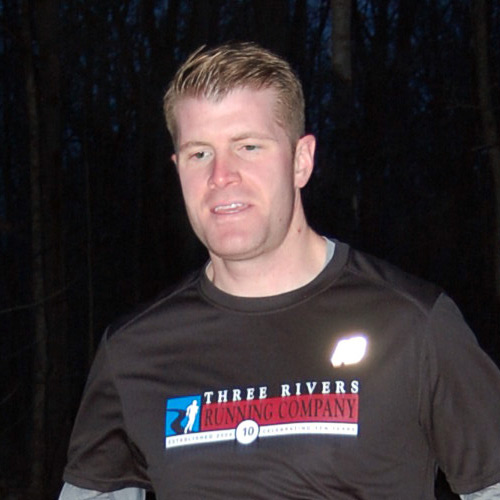Everyone talks about staying hydrated when you’re training, but what does that mean in practical terms?
Hydration is very important when it comes to running, but it is more than just drinking water. About 50% of our water intake is actually water; the rest is from foods that we eat, other liquids we drink, and our own metabolism.
Water aids in nearly every function of our bodies and will also prevent injury, illness, and fatigue.
For most active people, the recommended 64 oz a day of water simply isn’t enough. Depending on your size and activity level, you should be getting closer to 90 oz of water a day, plus foods that contain high levels of water such as fruits and vegetables.
How much should I drink before a run?
How much water you need before you run depends on what time of the day you run and other activities that you’re doing before you run. If you’re going to run in the afternoon or evening, you should be drinking water throughout the day. Contrary to popular belief, feeling thirsty is actually a sign of under-hydration rather than dehydration – it is simply a sign from your body that you need to drink some water. Think of it like the gas light in your car; you still have a few miles left to go, but you’re going to want to fill up soon.
How do I know when I’m hydrated?
Hydration can be a trial and error process and it is different for each individual. The best way to tell if you’re hydrated is to check the color of your pee. We know, it sounds gross, but it’s fool proof! One of our hydration and safety brands, Nathan, even put together this handy little chart:

Should I drink water while I’m running?
The first question you need to answer is, how far are you running? If you are running for more than 45 minutes, you’re going to want to carry water with you, stash it somewhere you can easily get to it, or plan some water stops at a park or somewhere with accessible drinking fountains.
In the Fort4Fitness races, you will have water available to you throughout the course. The 4-mile course has 2 water stations, the 10k has 4, and the half-marathon course has 9.
You can check out the course map here!
Make sure you’re getting water as soon as you’re done running and especially after your race! It will cut down on the soreness and fatigue you will feel in your legs the next day.
Good luck to everyone participating in the Fort4Fitness activities!
written by Lynn Altevogt

